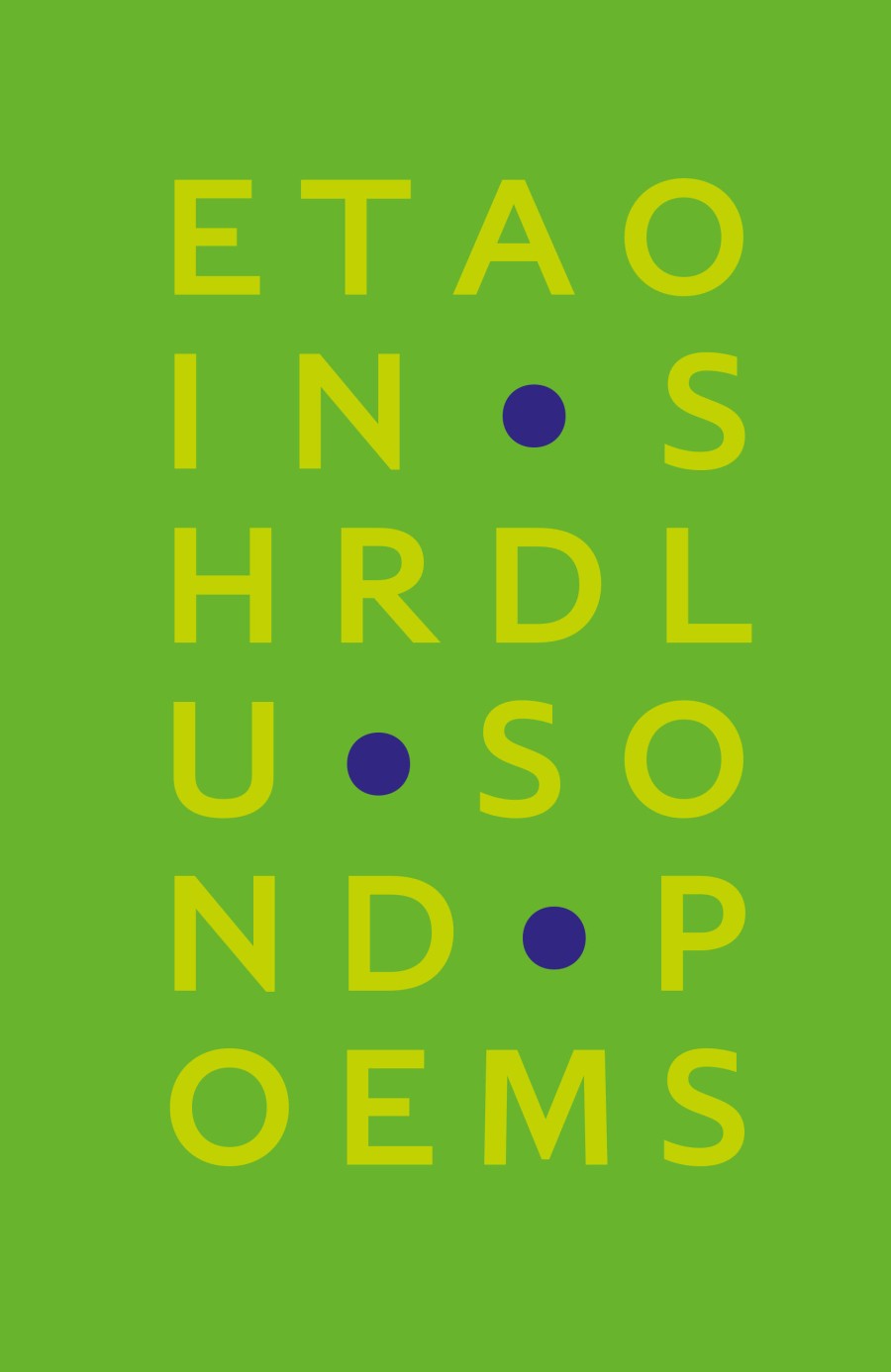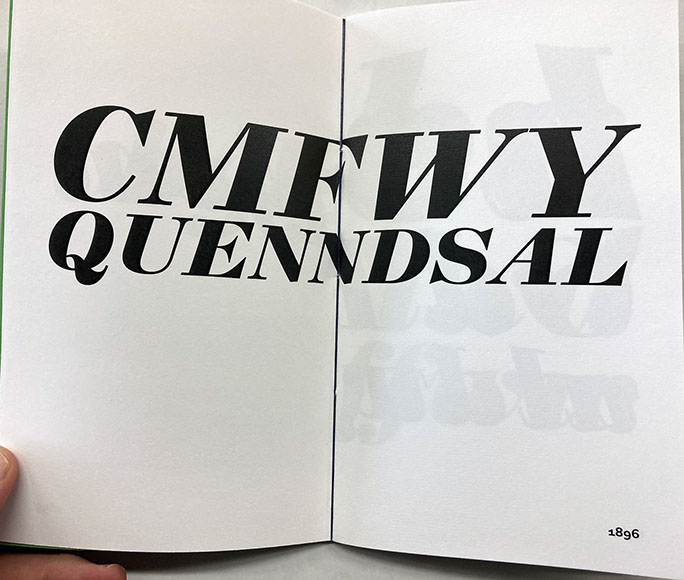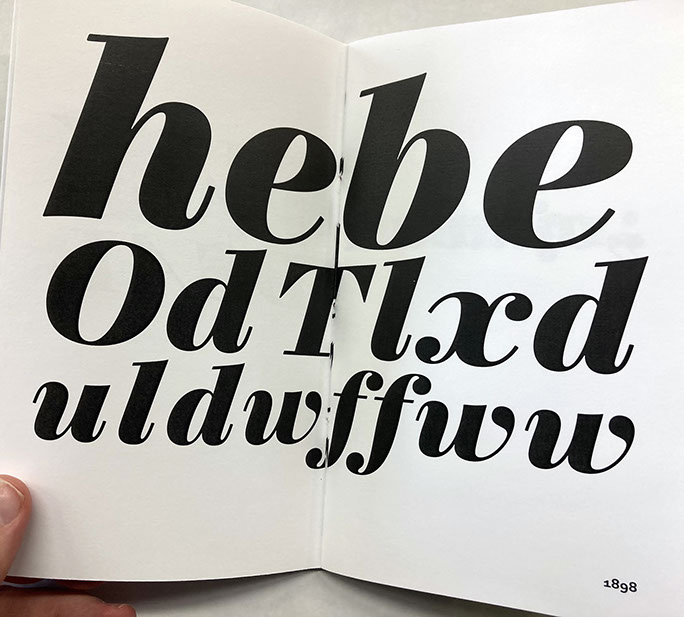

Product details
• Original Concept: Barrie Tullett
• Design & Production: Barrie Tullett
• Format: Pamphlet Stitched Book
• Size: 123x210
• Publisher: The Caseroom Press
• Publication Date: Summer 2020
• Price: N/A
Book Description
Etaoin Shrdlu. A name shrouded in mystery. Her work appears as early as 1894, and the last recorded instance in print is in 1976. A sound poet, who pre-dates the Futurist and Dadaist vanguards who are to this day considered the pioneers of the movement, her work only ever appeared as almost ‘interventionist’ statements in contemporary newspapers. Always credited to her by name, but never put in any other context, and dropped into the existing text matter seemingly at random, they could, and would be, overlooked for a century and a half. There is a known, but lost collaboration with Erdinger, and third-hand anecdotal evidence of a conversation between the two where Shrdlu spoke about the codes that underpinned her seemingly random sound poetry. We cannot even be sure how these statements were trans-lated, whether the printed versions are Shrdlu’s own, or transcripts by audience members… And what was her relationship with the elusive Erdinger? Mentor? Mother? Lover? An accidental coming together of two artists’ who sat outside of convention their entire lives? It cannot be an accident that these two impossible figures came to know each other. There must be some greater link than a random connection within an infinite universe. We can assume that Shrdlu must have been an active sound poet until her final years, that she must have died a centenarian, and that Erdinger who was first active in the 60s, was a much younger man. They are impossible figures to reconcile within the context of their art. What do the texts mean? What are the coded messages? Did Erdinger know the truth? Why do the first and last poems – some 80 years apart – start with that powerful connection of the ampersand? A character that implies a close connection between two parts. But all we have is that singular ‘t’. Alone. Unknown. Unknowing.

